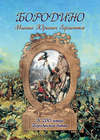Читать книгу: «The Fugitives: The Tyrant Queen of Madagascar»
Preface
It is almost allowable, I think, to say that this is a true story, for fiction has only been introduced for the purpose of piecing together and making a symmetrical whole of a number of most interesting facts in regard to Madagascar and the terrible persecutions that took place there in the early part and middle of the present century.
I have ventured to modify time and place somewhat, as well as to mix my characters and their deeds a little, in order to suit the conditions of my tale; but in doing so I have striven to avoid exaggeration and to produce a true picture of the state of affairs, at the period treated of, in what may be styled one of the most interesting and progressive islands of the world.
I take this opportunity of thanking the Rev. George Cousins, of the London Missionary Society, and formerly of Madagascar, for kindly supplying me with much valuable information, and of acknowledging myself indebted, among others, to the works of Messrs Sibree, Ellis, and Shaw.
R M Ballantyne.
Harrow-on-the-Hill, 1887.
Chapter One.
Introduces the Chief Actors and a Few Mysteries
Intense action is at all times an interesting object of contemplation to mankind. We therefore make no apology to the reader for dragging him unceremoniously into the middle of a grand primeval forest, and presenting to his view the curious and stirring spectacle of two white men and a negro running at their utmost possible speed, with flashing eyes and labouring chests—evidently running for their lives.
Though very different in aspect and condition, those men were pretty equally matched as runners, for there was no apparent difference in the vigour with which they maintained the pace.
The track or footpath along which they ran was so narrow as to compel them to advance in single file. He who led was a tall agile youth of nineteen or thereabouts, in knickerbocker shooting-garb, with short curly black hair, pleasantly expressive features, and sinewy frame. The second was obviously a true-blue tar—a regular sea-dog—about thirty years of age, of Samsonian mould, and, albeit running for very life, with grand indignation gleaming in his eyes. He wore a blue shirt on his broad back, white ducks on his active legs, and a straw hat on his head, besides a mass of shaggy hair, which, apparently, not finding enough of room on his cranium, overflowed in two brown cataracts down his cheeks, and terminated in a voluminous beard.
The third fugitive was also a young man, and a negro, short, thickset, square, tough as india-rubber, and black as the Emperor of Zahara. Good-humour wrinkled the corners of his eyes, the milk of human kindness played on his thick lips and rippled his sable brow, and intense sincerity, like a sunbeam, suffused his entire visage.
James Ginger—for that was his name, though his friends preferred to call him Ebony—scorned a hat of any kind; his simple costume consisting merely of two garments—canvas trousers and a guernsey shirt.
The sailor wore a cutlass in his belt. Ebony was unarmed. The youthful leader carried a short fowling-piece.
A yell in the far distance, as if from a hundred fiends, told that the pursuers had discovered the trail of the fugitives, and were gaining on them.
“We’ll have to fight for it, doctor,” growled the sailor in a savage tone, “better stop while we’ve got some wind left.”
“The wood seems more open ahead,” replied the youth, “let’s push on a bit further.”
“Hi!” exclaimed the negro in surprise, not unmingled with alarm, as they suddenly emerged on an open space and found themselves on the edge of a stupendous precipice.
The formation of the region was curious. There was a drop in the land, as it were, to a lower level. From their elevated position the three men could see a turbulent river rushing far below, at the base of the cliffs on the edge of which they stood. Beyond lay a magnificent and varied stretch of forest scenery, extending away to the horizon, where the prospect terminated in a blue range of hills. No path was at first visible by which the fugitives could reach the plain below. The precipice was almost perpendicular. They were about to leap recklessly over, and trust to descending by means of an occasional bush or shrub which grew on the rocky face, when the negro uttered one of his falsetto exclamations.
“Hi! here am a track.”
He dashed aside the branches of an overhanging bush, and ran along a narrow path, or ledge, which sloped gently downwards. It was a fearfully giddy position, but this in the circumstances, and to men accustomed to mast-heads and yard-arms, was of small moment. On they ran, at a more cautious pace indeed, but still with anxious haste, until about a quarter of the distance down the face of the precipice, when, to their horror, they came to a turn in the path where it suddenly ended. A mass of rock, apparently detached from the cliff by recent rains, had fallen from above, and in its thundering descent had carried away fully ten yards of the path into the stream below, where they could see its shattered fragments in the rushing river. The gap in front of them was absolutely impassable. On the right, the cliff rose sheer upwards. On the left, it went sheer down.
A sort of groan escaped from the doctor.
“What’s to be done now, Hockins?” he asked sharply, turning to the sailor.
“Die!” replied Hockins, in a tone of savage bitterness.
“Stuff an’ nonsense! we no’ die yit,” said the negro, pointing to the snake-like branches of a climbing plant which, spreading over the naked face of the cliff, turned into a crevice and disappeared round a jutting point.
“Will it bear our weight, lad?” asked the sailor doubtfully.
“It leads to nothing that I can see,” said the young doctor, “and would only ensure our being dashed to pieces instead of speared.”
“Nebber fear, massa Breezy. Dis not de fus’ time I’s hoed troo de forests. If you stop here you die. James Gingah he go on an’ lib.”
“Go on then, Ebony; we will follow,” returned Breezy, slinging his gun on his shoulder so as to leave his hands free.
A yell of disappointment on the cliffs above accelerated their movements. It was evident that the pursuers had come out on the open plateau, but had not observed the path by which they descended. As it was certain, however, that they would find it in a few minutes, Ebony sprang upon the creeping plant and clambered along its tortuous limbs like a monkey. Young Breezy followed, and Hockins came last.
The plant was tough. It stood the strain well. If it had given way, death on the jagged rocks below would have been the result. But death by savage spears was behind them, so they did not hesitate. A few seconds and all three had passed round the jutting rock and into the crevice, where they were completely hidden from the view of any one standing on the path they had just left.
In the crevice they found a ledge or platform sufficiently large to admit of their standing together. They had scarcely obtained a footing on it when another shout announced that the pursuer had traced their trail to the head of the track.
We know not, reader, whether you have ever experienced that heart-melting qualm which comes over one at the sudden and unexpected approach of what, at least, appears to be death. If you have, you will be able to understand the intense relief and thankfulness felt by the fugitives when, safe from immediate danger, they listened to their pursuers as they held excited conversation at the end of the broken track. Not knowing the language they could not, of course, understand what was said, and being just beyond the range of vision—owing to the jutting cliff that concealed them—they could not see what their pursuers were doing, but they heard a suggestive crash and a sharp exclamation.
Had they been able to see, they would have understood the situation well enough without the aid of language.
Two of the natives, who were dark-skinned and almost naked savages, had come to the place where the track had been broken away. They gazed at the profound depths on the left and the inaccessible cliffs on the right, and then glanced at each other in solemn surprise.
No doubt the creeping plant would in a few seconds have attracted special attention, had not an incident turned their minds in another direction. While the foremost savage was craning his neck so as to see as far round the projecting cliff as possible, the piece of rock on which his advanced foot was dislodged, and he had the narrowest possible escape from plunging headlong after the rock, which went bounding and crashing into the gulf below.
Instantly the faces of the two men gleamed with intelligence; they nodded with energy, grinned with satisfaction, and pointed to the abyss in front of them with the air of men who had no doubt that their enemies were lying down there in quivering fragments.
Something of this James Ginger did indeed manage to see. Curiosity was so powerfully developed in that sable spirit, that, at the imminent risk of his life, he reached out by means of a branch, and so elongated his black neck that he got one of his brilliant eyes to bear for a moment upon his foes. He appreciated the situation instantly, and drew back to indulge in a smothered laugh which shut up both his eyes and appeared to gash his face from ear to ear.
“What’s wrong with you, Ebony?” whispered Mark Breezy, who was in anything but a laughing mood just then.
“Oh! nuffin’, nuffin’, massa; only dem brown niggers are sitch asses dat dey b’lieve a’most anyting. Black niggers ain’t so easy putt off de scent. Dey tinks we’s tumble ober de precipis an’ busted ourselbes.”
“Lucky for us that they think so,” said Hockins, in a soft tone of satisfaction. “But now, what are we to do? It was bad enough clamberin’ up here in blazin’ excitement to save our lives, but it will be ten times worse gettin’ down again in cold blood when they’re gone.”
“Time enough to consider that when they are gone,” muttered Breezy. “Hush! Listen!”
The sounds that reached their place of concealment told clearly enough that a number of the savages had descended the cliffs, presumably to look at the place over which the white men had fallen. Then there was much eager conversation in an unknown tongue, mingled with occasional bursts of laughter—on hearing which latter the huge mouth of our negro enlarged in silent sympathy. After a while the voices were heard to retire up the narrow track and become fainter until they died away altogether, leaving no sound save the murmur of the rushing river to fill the ears of the anxious listeners who stood like three statues in a niche on the face of that mighty precipice.
“Now, you know,” said Breezy, with a sigh of relief, “this is very satisfactory as far as it goes, and we have reason to be thankful that we are neither speared nor dashed to pieces; nevertheless, we are in an uncomfortable fix here, for night is approaching, and we must retrace our steps somehow or other, unless we make up our minds to sleep standing.”
“That’s so, doctor. There’s not room to lie down here,” assented the sailor, glancing slowly round; “an’, to tell ’ee the plain truth, I feel as funky about trustin’ myself again to that serpent-like creeper as I felt the first time I went up through the lubber-hole the year I went to sea.”
“What you’s ’fraid ob, Mr ’Ockins?” asked Ebony.
“Afraid o’ the nasty thing givin’ way under my weight. If it was a good stout rope, now, I wouldn’t mind, but every crack it gave when I was comin’ aloft made my heart jump a’most out o’ my mouth.”
“What have ’ee found there, doctor?” asked the seaman, on observing that his companion was groping behind a mass of herbage at the back part of the niche in which they stood.
“There’s a big hole here, Hockins. Perhaps we may find room to stay where we are, after all, till morning. Come here, Ebony, you’ve got something of the eel about you. Try if you can wriggle in.”
The negro at once thrust his head and shoulders into the hole, but could not advance.
“Bery strange!” he said, drawing out his head, and snorting once or twice like a dog that has half-choked himself in a rabbit-hole. “Seems to me dere’s a big block o’ wood dere stoppin’ de way.”
“Strange indeed, Ebony. A block of wood could not have grown there. Are you sure it is not a big root?”
“Sartin’ sure, massa. I hab studied roots since I was a babby. Hold on, I try again.”
The negro tried again, and with such vigour that he not only displaced the block of wood, but burst in several planks which concealed the entrance to a cavern. They fell on the stone floor with a crash that aroused a multitude of echoes in the dark interior. At the same moment something like a faint shriek or wail was heard within, causing the hearts of the three listeners to beat faster.
“Did you hear that, Hockins?”
“Ay, I heard it sure enough. What is it, think ’ee, lad!” said the seaman to the negro.
Ebony, who was gazing into the dark cavern with glaring eyeballs and distended nostrils, replied—
“My advice to you is, let’s go back de way we come. Dis no place for ’spectable Christians.”
“Do you fear ghosts?” asked Mark, smiling, yet at the same time bringing his gun into a convenient position, with his finger ready on the trigger.
“I fears nuffin,” returned the negro with a proud look, while beads of perspiration stood on his brow.
“Then ye’re a braver man than I am, Ebony, for I fear that climbin’ plant worse than a ghost; so here goes to find out what it is.”
Although the sailor spoke thus boldly, and tried to look cool, it is certain that he also was afflicted with sensations of an unusual description, which, of course, he would have scorned to admit were the result of fear! His power of will, however, was stronger than his fears. Drawing his cutlass, he was about to enter the cavern, when Mark laid a hand on his shoulder.
“Come, Hockins, you have accepted my lead hitherto. It is not fair to take it out of my hands at this critical point.”
So saying he glided past his comrade, and was almost lost to sight immediately in the deep gloom.
“Softly, softly, doctor,” whispered the seaman, as he followed, “there may be holes or pits within—”
“All right; I’m feeling my way carefully. Keep close.”
As he spoke a slight, indescribable sound was heard—almost like a sigh.
“Hist! Did ’ee hear that?” said Hockins in the lowest possible whisper.
“Oh! massa, let’s go back de way we come,” urged Ebony, in the same low but earnest tone.
Mark Breezy did not reply, but the click of his gun as he cocked it showed that he was on the alert.
For nearly a minute the three men stood in absolute silence, listening for a repetition of the mysterious sound, and, though it did not recur, there was an indescribable feeling in the heart of each that they were not alone in that cavern.
“Have you not flint and steel?” asked Mark.
“Yes; but to strike a light would only show our whereabouts if there is any one here.”
The seaman accidentally touched Ebony on the elbow as he spoke, and sent that worthy’s heart, or something like it, into his throat with such violence as nearly to choke him.
“Git along, massa,” he said in a gaspy whisper, when able to articulate, “we’s got to go troo wid it now.”
Acting on this advice the young man continued to advance cautiously, feeling his way step by step and fully expecting every moment to reach the inner wall of the cavern.
Presently the explorers were again brought to a stand by the sudden appearance of a light in the far distance. As, however, it did not move, they continued to advance, and soon were convinced that it was daylight shining through an opening in that direction. Every step convinced them more and more that they were right, and their spirits rose with the hope of escaping, though the light made no appreciable difference as yet in the darkness that surrounded them.
Suddenly a sharp, loud, short cry filled the cavern for an instant, and almost froze their blood! The loudness and abrupt stoppage of the cry left the impression that the creature which uttered it had been suddenly and effectively killed, for it ended in a sharp gasp or gurgle, and then all was still,—but only for a moment, for the shock to Mark’s nerves was such that his finger inadvertently pressed the trigger of his gun, which exploded with a deafening crash, and awoke shrieks and cries that were not to be accounted for by mere echoes.
This was too much for ordinary human beings. Fabled knights of old in armour of proof might have stood it, but the two white men and the black, being ordinary heroes, regardless of pride and honour, went in for a regular stampede, and it is but simple justice to say that Ebony won, for he reached the outlet of the cavern first, and sprang through it into daylight like a black thunderbolt. It is also due to his comrades to add that they were not far behind him.
Their courage, however, was soon restored. Daylight has a celebrated power of restoring courage. On clearing the bushes which concealed the entrance to the cave they simultaneously stopped, turned round, and resolutely faced their foe!
But no foe was to be seen! Once again all was still as death. After glaring for a few seconds at the spot whence the expected enemy should have issued, the three fugitives relaxed their frowning brows and turned inquiring eyes on each other.
“Dis beats cockfightin’ a’most,” said Ebony, with a sigh of intense relief.
“Ay, an’ every other sort o’ fightin’ as I ever heard on,” responded Hockins.
“Come, friends,” said their young leader, “whatever it may have been, it behoves us to get as far away from this spot as possible, and that as fast as we can.”
Chapter Two.
Harks back a little
The spot where our adventurers found themselves on issuing from the mysterious cave was a peculiarly rugged one. It formed a sort of hollow or depression in the forest-land in which we introduced the three men as fugitives. From this hollow there descended a narrow track or pathway to the extensive valley which had been seen from the summit of the precipice that barred their flight, and had so nearly proved fatal.
So confused was the nature of the ground here, and so intricate were the tracks—originally formed no doubt by wild animals, though made use of by wandering men—that it became impossible for Mark Breezy to know in what direction he was leading his comrades as he wound in and out among large rocks and fallen trees. In fact it was more by chance than guidance that they ultimately hit upon the path which finally led them to the lower region or plateau of forest-land; and it is certain that they would have found it impossible to find their way back to the cave, even had they desired to do so.
Their chief object, however, was to put as much space as possible between themselves and their late pursuers, and to this end they pushed forward at their best speed, until they reached a small river which appeared to be a tributary to, or a branch of, that which they had seen from the heights earlier in the day.
“‘Come to a ribber—couldn’t git across,
Gib a couple o’ dollars for an’ old blind hoss,’”
murmured Ebony, quoting an ancient ditty.
“We shall have to swim it, I fear,” remarked Breezy, “for there is no horse here, blind or otherwise. Perhaps that fallen tree may prove strong enough to serve as a bridge.”
He pointed to a slender tree which had evidently been placed there, with several others, for the purpose of forming a rough and ready bridge; but its companions had been removed by floods, for they lay tossed on the bank further down among other wreckage.
“It’ll be somethin’ like tight-rope dancin’,” said the sailor. “We’ll have to repair the bridge.”
“Nuffin’ ob de sort! Look here.”
Ebony ran to the tree referred to, and skipped over with admirable agility, though it bent under him not unlike a tight-rope.
“But I can’t do that,” said Hockins, “not bein’ a black monkey, d’ee see?”
With a sudden expression of intense pity the negro exclaimed—
“Oh! I beg pardin’. Didn’t I forgot; you’s on’y a white man. But stop; I come ober agin an’ took you on my back.”
He pretended to be on the point of recrossing, but the sailor had already got upon the bridge, and, with much balancing and waving of his long arms, passed over in safety. Mark was about to follow, when Hockins called out, “Better pitch over the powder-flask in case you fall in.”
“That’s true, for I mayn’t be as good as you or Ebony on the tight-rope. Look out!”
He pulled the powder-flask out of his pocket and threw it towards his comrades. Unfortunately the branch of an overhanging bush had touched his hand. The touch was slight, but it sufficed to divert the flask from its proper course, and sent it into the middle of the stream.
Ebony followed it head first like an otter, but soon reappeared, gasping and unsuccessful. Again and again he dived, but failed to find the flask, without which, of course, their gun was useless, and at last they were obliged to continue their flight without it.
This was a very serious loss, for they had not an ounce of provisions with them, and were in a land the character and resources of which were utterly unknown at least to two of them, while the youth who had become their leader knew very little more than the fact that it was the island of Madagascar, that it lay about 300 miles off the eastern shores of Africa, and that the tribes by whom they were surrounded were little if at all better than savages.
That day they wandered far into the depths of a dark and tangled forest, intentionally seeking its gloomiest recesses in order to avoid the natives, and at night went supperless to rest among the branches of an umbrageous tree, not knowing what danger from man or beast might assail them if they should venture to sleep on the ground.
Although possessed of flint and steel, as well as tinder, they did not use them for fear of attracting attention. As they had nothing to cook, the deprivation was not great. Fortunately the weather at the time was pleasantly warm, so that beyond the discomfort of not being able to stretch out at full length, the occasional poking of awkward knots and branches into their ribs, and the constant necessity of holding on lest they should fall off, their circumstances were not insufferable, and might have been worse.
While they are enjoying their repose, we will tell in a few sentences who they were and how they got there.
When Mark Breezy, in the closing years of his medical-student career, got leave to go on a voyage to China in one of his father’s ships, the Eastern Star, for the benefit of his health and the enlargement of his understanding, he had no more idea that that voyage would culminate in a bed up a tree in the forests of Madagascar than you, reader, have that you will ultimately become an inhabitant of the moon! The same remark may with equal truth be made of John Hockins when he joined the Eastern Star as an able seaman, and of James Ginger—alias Ebony—when he shipped as cook. If the captain of the Eastern Star had introduced those three,—who had never seen each other before—and told them that they would spend many months together among savages in the midst of terrestrial beauty, surrounded by mingled human depravity and goodness, self-denial and cruelty, fun and tragedy such as few men are fated to experience, they would have smiled at each other with good-natured scepticism and regarded their captain as a facetious lunatic.
Yet so it turned out, though the captain prophesied it not—and this was the way of it.
Becalmed off the coast of Madagascar, and having, through leakage in one of the tanks, run short of water, the captain ordered a boat with casks to be got ready to go ashore for water. The young doctor got leave to land and take his gun for the purpose of procuring specimens—for he was something of a naturalist—and having a ramble.
“Don’t get out of hail, Doctor,” said the captain, as the boat shoved off.
“All right, sir, I won’t.”
“An’ take a couple o’ the men into the bush with you in case of accidents.”
“Ay ay, sir,” responded Mark, waving his hand in acknowledgment.
And that was the last that Mark Breezy and the captain of the Eastern Star saw of each other for many a day.
“Who will go with me?” asked Mark, when the boat touched the shore.
“Me, massa,” eagerly answered the negro cook, who had gone ashore in the hope of being able to get some fresh vegetables from the natives if any were to be found living there. “Seems to me dere’s no black mans here, so may’s well try de woods for wild wegibles.”
“No no, Ebony,” said the first mate, who had charge of the boat, “you’ll be sure to desert if we let you go—unless we send Hockins to look after you. He’s the only man that can keep you in order.”
“Well, I’ll take Hockins also,” said Mark, “you heard the captain say I was to have two men. Will you go, Hockins?”
“Ay, ay, sir,” answered the seaman, sedately, but with a wrinkle or two on his visage which proved that the proposal was quite to his taste.
All the men of the boat’s crew were armed either with cutlass or carbine—in some cases with both; for although the natives were understood to be friendly at that part of the coast it was deemed prudent to be prepared for the reverse. Thus John Hockins carried a cutlass in his belt, but no fire-arm, and the young doctor had his double-barrelled gun, with powder-flask and shot-belt, but Ebony—being a free-and-easy, jovial sort of nigger—went unarmed, saying he “didn’t want to carry no harms, seein’ he would need all harms he had to carry back de fresh wegibles wid.”
Thus those three went into the bush, promising to keep well within ear-shot, and to return instantly at the first summons.
That summons came—not as a shout, as had been expected, but as a shot—about an hour after the landing. Our explorers ran to the top of a neighbouring mound in some surprise, not unmixed with anxiety. Before they reached the summit a volley from the direction of the sea, followed by fierce yells, told that some sort of evil was going on. Another moment, and they reached the eminence just in time to behold their boat’s crew pulling off shore while a band of at least a hundred savages attacked them—some rushing into the water chest-deep in order to seize the boat. Cutlass and carbine, however, proved more than a match for stone and spear.
The fight had scarce lasted a minute, and our trio were on the point of rushing down to the rescue, when a white cloud burst from the side of the Eastern Star, the woods and cliffs echoed with the roar of a big gun, and a shot, plunging into the crowd of natives, cut down many of them and went crashing into the bushes.
It was enough. The natives turned and fled while the boat pulled to the ship.
Uncertainty as to what should be done kept Mark Breezy and his companions rooted for a few seconds to the spot. Indecision was banished, however, when they suddenly perceived a band of thirty or forty natives moving stealthily towards them by a circuitous route, evidently with the intention of taking them in rear and preventing them from finding shelter in the woods.
It was the first time that the young student’s manhood had been put severely to the test. There was a rush of hot blood to his forehead, and his heart beat powerfully as he saw and realised the hopelessness of their case with such tremendous odds against them.
“We can die but once,” he said with forced calmness, as he cocked his gun and prepared to defend himself.
“I’s not a-goin’ to die at all,” said the negro, hastily tightening his belt, “I’s a-goin’ to squatilate.”
“And you?” said Mark, turning to the seaman.
“Run, says I, of coorse,” replied Hockins, with something between a grin and a scowl; “ye know the old song—him wot fights an’ runs away, may live to fight another day!”
“Come along, then!” cried Mark, who felt that whether they fought or ran he was bound to retain the leadership of his little party.
As we have seen, they ran to some purpose. No doubt if they had started on equal terms, the lithe, hardy, and almost naked savages would have soon overtaken them, but fortunately a deep gully lay between them and the party of natives who had first observed them. Before this was crossed the fugitives were over the second ridge of rolling land that lay between the thick woods and the sea, and when the savages at last got upon their track and began steadily to overhaul them, the white men had got fairly into the forest.
Still there would have been no chance of ultimate escape if they had not come upon the footpath down the precipice which we have described as having been partly carried away by falling rocks, thus enabling Hockins and his companions to make a scramble for life which no one but a sailor, a monkey, or a hero, would have dared, and the impossibility of even attempting which never occurred to the pursuers, who concluded, as we have seen, that the white men had been dashed to pieces on the rocks far below.
Whether they afterwards found out their mistake or not we cannot tell.
The reason—long afterwards ascertained—of this unprovoked attack on the boat’s crew, was the old story. A party of godless white men had previously visited that part of the coast and treated the poor natives with great barbarity, thus stirring up feelings of hatred and revenge against all white men—at least for the time being. In this way the innocent are too often made to suffer for the guilty.
We will now return to our friends in the tree.
Покупайте книги и получайте бонусы в Литрес, Читай-городе и Буквоеде.
Участвовать в бонусной программе










